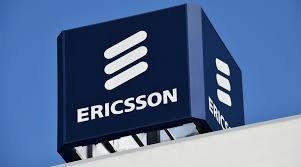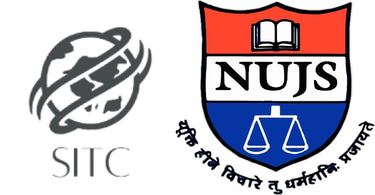Quick Updates — September 2025
QUICK UPDATESSEPTEMBER2025
Bhumika - BO'30
10/1/20255 min read

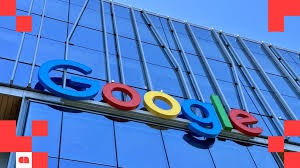
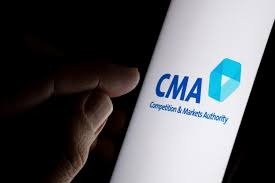
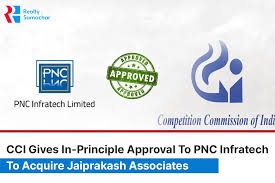
September 2, 2025 — U.S. Court Orders Remedies in Google Search Antitrust Case
On September 2, 2025, the U.S. District Court for the District of Columbia issued a ruling in the landmark antitrust case, United States et al. v. Google LLC, addressing Google's monopolistic practices in the online search market. While the court acknowledged Google's unlawful conduct, it opted for behavioral remedies over structural interventions.
The court prohibited Google from entering or maintaining exclusive contracts related to the distribution of Google Search, Chrome, Google Assistant, and the Gemini app. Additionally, Google was ordered to make certain search index and user-interaction data available to qualified competitors and to offer search and search text ad syndication services to enable rivals to compete effectively. These measures aim to diversify competition and provide opportunities for emerging players in the search and AI sectors.
However, the court rejected the Department of Justice's (DOJ) proposals for more strict remedies, including the divestiture of Google's Chrome browser and Android operating system. Judge Amit Mehta determined that such structural changes were not warranted and that the behavioral remedies would suffice to address the competitive concerns.
Google expressed concerns over the potential impact on user privacy and data security but did not challenge the decision. The ruling represents a crucial development in the ongoing efforts to regulate big tech companies and ensure fair competition in the digital marketplace.
This decision is part of a broader trend of increasing scrutiny and regulatory action against major technology firms, reflecting growing concerns about market dominance and its implications for consumers and competition.
September 5, 2025 — EC Fines Google €2.95B for Ad-Tech Abuse
On September 5, 2025, the European Commission imposed a €2.95 billion fine on Google for breaching EU antitrust rules by distorting competition in the online advertising technology sector. This penalty marks the fourth such sanction against Google by the EU, underscoring the Commission's commitment to regulating dominant digital platforms.
Initiated in June 2021 following a complaint from the European Publishers Council, the investigation concluded that Google had misused its market dominance in two critical markets : publisher ad servers and programmatic ad buying tools for the open web. Specifically, Google was found to have favored its own ad exchange, AdX, by providing it with advance information on competitors' bids and by steering bids from its ad buying tools, Google Ads and DV360, predominantly to AdX. These practices, ongoing since at least 2014, were deemed to have inflated costs for advertisers and publishers, potentially raising prices for consumers.
The Commission has ordered Google to cease these self-preferencing practices and address conflicts of interest within its ad-tech supply chain. Google has 60 days to propose required remedies, including possible structural remedies, such as divestitures, should behavioral commitments prove inadequate. Failure to comply could result in additional sanctions.
This decision reflects the EU's broader strategy to ensure fair competition in digital markets and to prevent anti-competitive conduct by dominant tech firms.
September 9, 2025 — UK CMA Issues Guidance on No-Poach, Wage-Fixing
On September 9, 2025, the UK Competition and Markets Authority (CMA) published comprehensive guidance titled Competing for Talent, clarifying how UK competition law applies to recruitment and human resources practices. This marks a significant step in the CMA's ongoing scrutiny of anti-competitive conduct within labour markets.
The guidance identifies three primary anti-competitive behaviours like No-Poach Agreements: Arrangements where businesses consent to avoid hiring or soliciting one another’s employees. Such agreements are prohibited under UK competition law, even if they are unilateral.Wage-Fixing: Agreements between businesses to set or coordinate wages or other employment terms. This includes aligning pay scales or setting salary caps, which can restrict competition in the labour market. Exchange of Competitively Sensitive Information: Sharing information about wages, hiring plans, or other sensitive employment data between competitors. Such exchanges can facilitate coordinated behaviour that harms competition.
The CMA emphasizes that businesses competing for the same talent are considered competitors under competition law, regardless of whether they compete in the same product or service markets. The guidance also highlights that informal arrangements, such as those made during industry meetings or through trade associations, can constitute anti-competitive conduct.
This development underscores the CMA's commitment to ensuring competitive labour markets and provides businesses with clearer parameters to navigate compliance.
September 16, 2025 — CCI Approves PNC Infratech's Acquisition of Jaiprakash Associates Ltd.
On September 16, 2025, the Competition Commission of India (CCI) granted approval for PNC Infratech Limited to acquire a minimum of 95% and up to 100% of Jaiprakash Associates Limited (JAL), either directly or through a wholly owned subsidiary. This acquisition is part of JAL's ongoing Corporate Insolvency Resolution Process (CIRP) under the Insolvency and Bankruptcy Code, 2016
PNC Infratech, a publicly listed infrastructure company, specializes in Engineering, Procurement, and Construction (EPC) projects, primarily in the road and highway sector. The company’s primary activities involve building highways, expressways, bridges, flyovers, airport runways, and additional infrastructure works. The acquisition of JAL, a diversified infrastructure and industrial company engaged in sectors including hydropower generation, cement manufacturing, real estate development, hospitality, and EPC contracting, marks a significant expansion of PNC Infratech's portfolio .
The CCI’s clearance signifies that the proposed acquisition is unlikely to pose substantial competition issues in the Indian market, thereby facilitating the resolution of JAL's insolvency proceedings and potentially strengthening PNC Infratech's position in the infrastructure sector.
September 18, 2025 — Supreme Court Shuts CCI Probe in Ericsson SEP Case
On September 18, 2025, the Supreme Court of India upheld the Delhi High Court's 2023 ruling, effectively terminating the Competition Commission of India (CCI)'s investigation into Ericsson over allegations of charging excessive royalties for its Standard Essential Patents (SEPs). The Court concurred with the High Court's finding that the Patents Act, 1970, being a special law, prevails over the Competition Act, 2002, in matters concerning patent rights, including licensing and royalty disputes.
The case originated in 2013 when Indian mobile manufacturers Micromax, Intex, and iBall alleged that Ericsson was enforcing unfair licensing terms for its SEPs, which are crucial for adhering to global telecom standards. The CCI initiated an investigation based on these complaints. However, Ericsson challenged the CCI's jurisdiction, arguing that patent-related disputes fall under the exclusive purview of the Controller of Patents under the Patents Act.
The Supreme Court's dismissal of the CCI's appeal reinforces the principle that patent law is a specialized domain, and the CCI's role is limited in overseeing such matters. This decision could have significant implications for future antitrust scrutiny of patent licensing practices in India.
